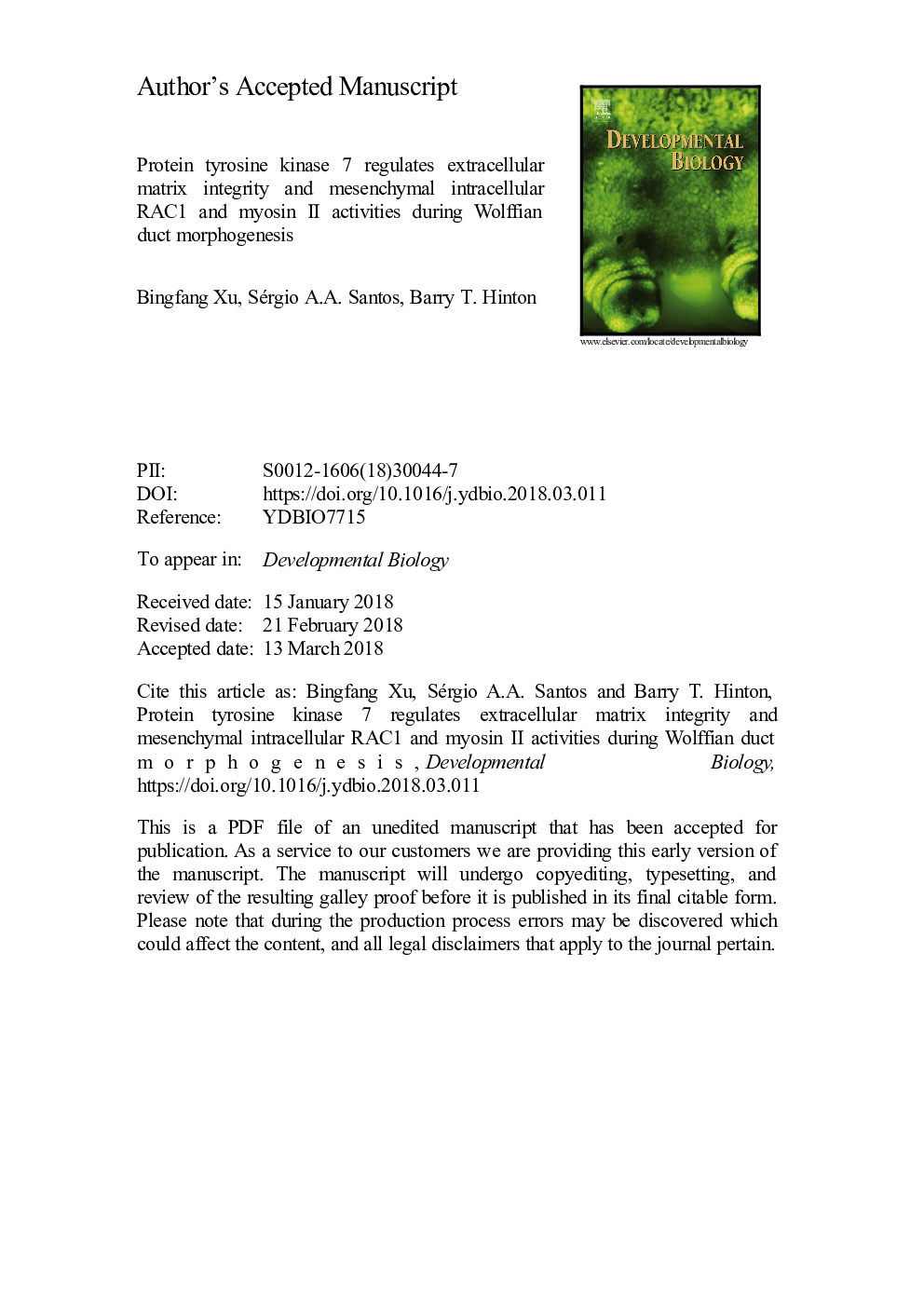| Article ID | Journal | Published Year | Pages | File Type |
|---|---|---|---|---|
| 8467291 | Developmental Biology | 2018 | 36 Pages |
Abstract
Wolffian duct morphogenesis must be highly coordinated with its specialized function of providing an optimal microenvironment for sperm maturation. Without normal Wolffian duct morphogenesis, male infertility will result. Our previous study showed that mediolateral and radial intercalation of epithelial and mesenchymal cells respectively, were major drivers of ductal elongation and were regulated by protein tyrosine kinase 7 (PTK7), a member of the planar cell polarity (PCP) non-canonical Wnt pathway. To understand the mechanism by which PTK7 regulates cell rearrangement/intercalation, we investigated the integrity of the extracellular matrix (ECM) and the activity of intracellular cytoskeleton mediators following loss of Ptk7. Abnormal assembly of nephronectin, laminin, and collagen IV at the basement membrane and fibrosis-like deposition of fibrilla collagen in the interstitium were observed in Ptk7 knockout Wolffian ducts. Further, the activity levels of RAC1 and myosin II, two cytoskeleton mediators, decreased in the Ptk7 knockout mesenchyme compared to controls. In addition, in-vitro experiments suggested that alterations of ECM and cytoskeleton mediators resulted in changes in Wolffian duct morphogenesis. When in-vitro-cultured Wolffian ducts were treated with collagenase IV, the degree of cross-linked fibrilla collagen was reduced, Wolffian duct elongation and coiling were significantly reduced, and an expanded cyst-like duct was observed. When Wolffian ducts were treated with RAC1 inhibitor NSC23766, mesenchymal fibrilla collagen was disassembled, and Wolffian duct elongation was significantly reduced. Our findings provide evidence that PTK7 regulates ECM integrity and the activity levels of RAC1 and myosin II, which in turn regulates Wolffian duct morphogenesis and therefore, epididymal function.
Related Topics
Life Sciences
Biochemistry, Genetics and Molecular Biology
Cell Biology
Authors
Bingfang Xu, Sérgio A.A. Santos, Barry T. Hinton,
